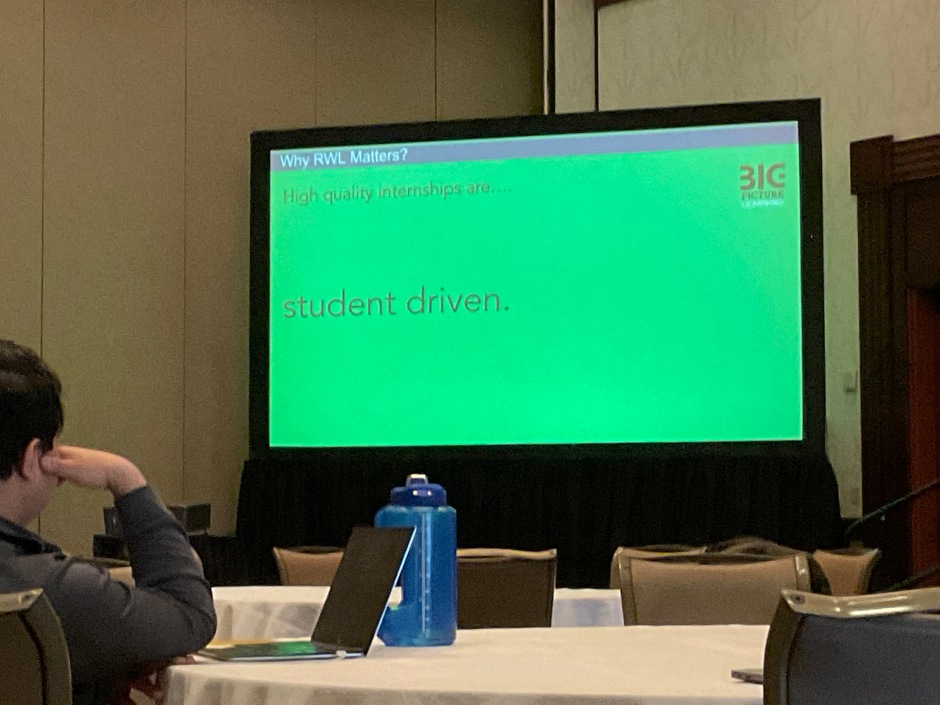Day 3 SXSW! I went back to the hotel a bit early today because officially got to that point where I was starting to have a cognitive load overdrive and needed a break. So much great content happening in such a short amount of time it really is fantastic!
Something that I found striking today, which I often find myself thinking about at every conference I attend, is the extreme lack of young learners present. Edu conferences tend to have extreme discounts for students to attend these events, but hardly any organizations / schools seem to take advantage of these policies by trying to get these stakeholders To attend. I know these conferences may be designed for teachers, admin, etc. but everyone here will spend all day talking about how, ”we must include student voice,” yet where is the action where it matters? Where are the students?!?!
There are a few other young learners present other than me and my sister, however, even these learners seem to just be around for their one session they’re presenting at and then disappear. To be fair, perhaps they could have just been at sessions I wasn’t at, or my sister, but I haven’t seen anyone yet in any session or the hall which makes this feel unlikely.
Furthermore, within the 2 sessions where I have seen students involved, the students were primarily asked to talk about their past experiences. Then, as is consistent with other conferences I’ve been to, the last question is something to the extent of, ”If you had a magic wand” or ”If you could trade places with x” then ”what would you change about school?”
Even in the keynote presentation for today, students were involved, which is a great first step that I don’t want to undermine, and some great things were said during the conversation from learners of all ages. I quoted many in my Tweets today. However, that said, these students were primarily brought in to talk about their experience learning during COVID… The reason this bothered me is because COVID shut school down 2 years ago; if we are only just now asking students about their experience on something that was such a huge radical issue, then we are too late.
Additionally, beyond wishing that more young learners were involved in education conferences, I wish the students that were involved were asked more questions about their current observations and more about their thoughts on the future. Students have way more thoughts and ideas than just those relevant to their past experiences in education. I know educators know this because it gets talked about in every single session in almost every single conversation.
Now the question is who will start taking the next steps to not just include students in conversations within the safety of their own learning environments but on a larger scale, bringing young learners beyond their own learning environments into the conversations of the nation’s education system?


